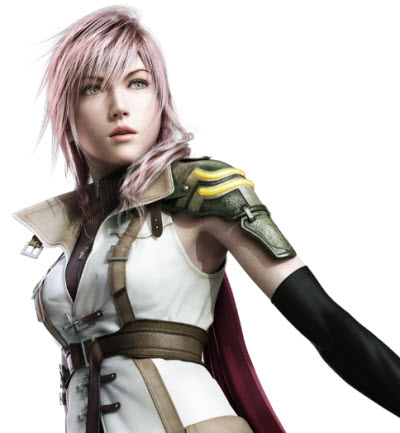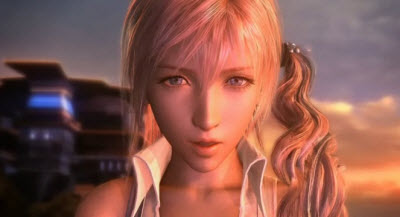 Yoichi Wada is kind of greedy. His company, Square Enix, has shipped more than 96 million copies of its Final Fantasy games since 1987. But he wants people to buy more, more, more. On March 8, the Japanese company began selling Final Fantasy XIII, the latest edition in the long-running role-playing game. This title has a lot more action in it and loads of movie-like animations in between the fighting sequences. But it remains true to its role-playing roots as well. Wada, chief executive of Square Enix, is pinning a lot of hopes on this game. Square Enix knows that its core market in Japan isn’t enough to fuel its growth. The company has to succeed on a global scale to keep growing. We caught up with Wada at the launch part for Final Fantasy XIII. Check out our interview.
Yoichi Wada is kind of greedy. His company, Square Enix, has shipped more than 96 million copies of its Final Fantasy games since 1987. But he wants people to buy more, more, more. On March 8, the Japanese company began selling Final Fantasy XIII, the latest edition in the long-running role-playing game. This title has a lot more action in it and loads of movie-like animations in between the fighting sequences. But it remains true to its role-playing roots as well. Wada, chief executive of Square Enix, is pinning a lot of hopes on this game. Square Enix knows that its core market in Japan isn’t enough to fuel its growth. The company has to succeed on a global scale to keep growing. We caught up with Wada at the launch part for Final Fantasy XIII. Check out our interview.
 VB: What is the significance of this game for you?
VB: What is the significance of this game for you?
YW: This is the first version that will go on both the Xbox 360 and the PlayStation 3. So this has a very big significance for us. A customer or a user would have a critical view. They want to know just how fun and how expressive this game and its characters will be on these new platforms. We have our expectations and the customer has expectations, and we have our own uneasiness about whether or not we can meet those expectations. In Japan, we launched it in Japan in December and it was very successful. My hope is to have the same success in the U.S. market as well.
VB: What’s the best way to describe the audience for this kind of game?
YW: Final Fantasy has rich storylines and beautiful visuals. For those who love those things, those are our gamers. In addition to that, the battle system is speedy. It is a lot faster than it used to be. There is a lot more action. There is a tightness and tension. Even though it is a role-playing game, the users feel like they’re in the middle of an action game.
 VB: Final Fantasy has been uniquely successful with nearly 100 million units sold. How do you make each game sell more? Do you make it more accessible to larger audiences?
VB: Final Fantasy has been uniquely successful with nearly 100 million units sold. How do you make each game sell more? Do you make it more accessible to larger audiences?
YW: The strategy differs with each game. This version of the game is the first one for this new generation of consoles. Our audience includes people who are just getting this new console now. We are targeting right in the middle of those gamers, which includes people who bought the consoles early and those who are just getting one now. Final Fantasy XIII is purposely going as mainstream as we can.
VB: The realism of the animation is far better than in the past. How much resource did you pour into this game? How many people did it take to build it?
YW: We had an enormous number of people working on this. I can’t say exactly. Of all the games we have made, we put the most human resources into this one. We did learn some things with this game that we could use in different games or in a later Final Fantasy.
 VB: Are the faces of the characters in the game realistic enough for you?
VB: Are the faces of the characters in the game realistic enough for you?
YW: We have made a huge effort in facial animation and we have made the faces real enough. From a technology view, we have done well. Our competitors have also done well. Now the question is how do we make the character more expressive? How do we make them act real? Those are the more important points.
VB: Has the Xbox 360 met your expectations?
YW: I am satisfied. In terms of quality, both the Xbox 360 and the PS 3 versions aren’t that different.
VB: Facebook has become extremely popular during the time you have been making this game. How does Final Fantasy fit into this era of gaming where Facebook is becoming so important?
 YW: In terms of using social networking, we can use them to promote our games. The more important question is how to use the social networks as the core of our games. We have done this in Japan, but we have not done it in the U.S. This is one of our challenges going forward. We’re not sure if Final Fantasy is fit as material for that or not. It’s very difficult to ascertain.
YW: In terms of using social networking, we can use them to promote our games. The more important question is how to use the social networks as the core of our games. We have done this in Japan, but we have not done it in the U.S. This is one of our challenges going forward. We’re not sure if Final Fantasy is fit as material for that or not. It’s very difficult to ascertain.
VB: How can you succeed in the American market?
YW: You mentioned Facebook. My belief that the networked culture is not global. It is very local, or regional. The question is how well our products will be accepted in different regions. This is something that is very important to us as we grow in different markets. We want our games to have a universal appeal. We are expanding in the U.S. market. It is something we want to understand. We are focused on it.
As an addendum, please check out our video interview with Ami Blair, vice president of marketing for Square Enix in the U.S. market. We also caught up with her last week at the Square Enix party, where she noted that one of the stars of the game is a strong female co-lead character.
[youtube=http://www.youtube.com/watch?v=S4aHD-aC7yg&w=480&h=385]
